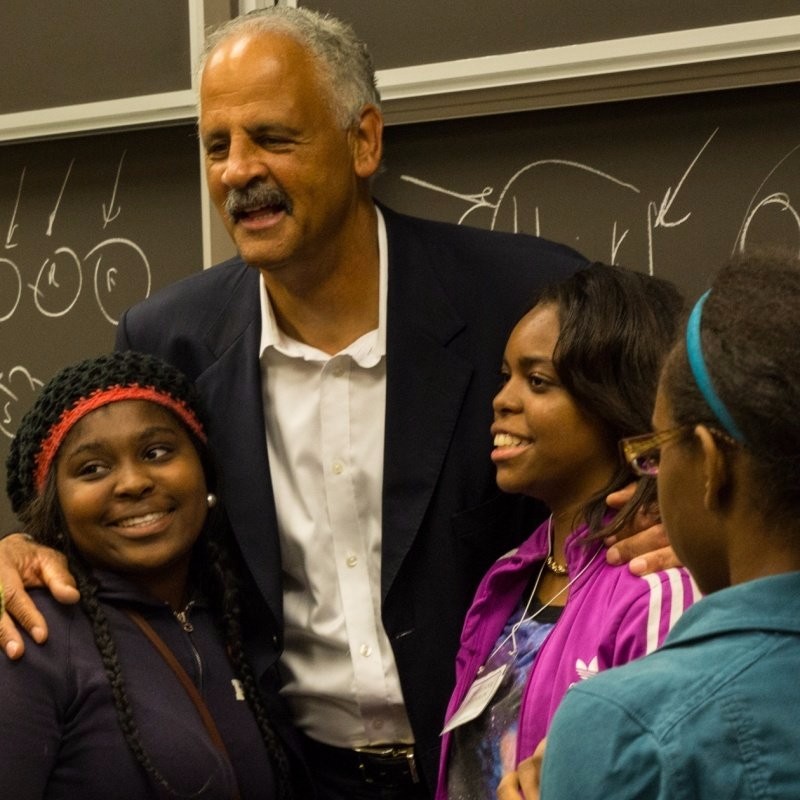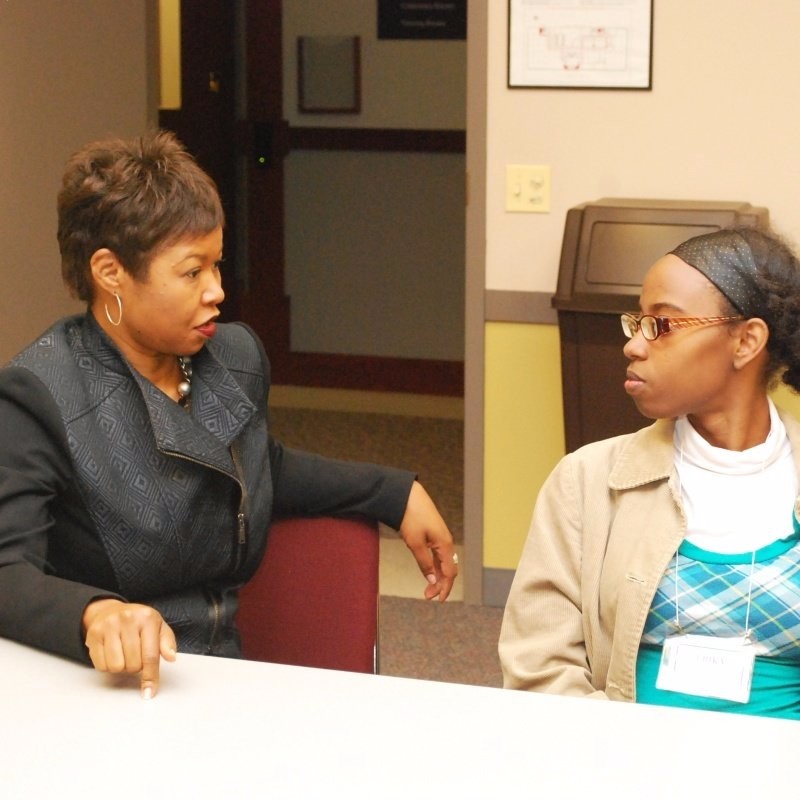 Just a few months ago, Monae Miller had no idea how to budget her money. The teenager from the West Side of Chicago wasn't very good at saving. But today she says that isn't a problem anymore, thanks to the skills she learned over the summer at a financial and leadership program operated by the DePaul's Driehaus College of Business and the Chicago Housing Authority (CHA).
Just a few months ago, Monae Miller had no idea how to budget her money. The teenager from the West Side of Chicago wasn't very good at saving. But today she says that isn't a problem anymore, thanks to the skills she learned over the summer at a financial and leadership program operated by the DePaul's Driehaus College of Business and the Chicago Housing Authority (CHA).
"Because of this program, I learned how to budget, about leadership and how much it takes to become a leader," says Miller. "I believe I know more things now than my peers who weren't in this program. It just puts you ahead of the game."
While others were enjoying the summer sun, Miller and 24 other students selected by the CHA were ensconced in the six-week Financial Literacy and Leadership Institute on DePaul's Loop Campus. Hosted by the the college's Department of Management, taught by DePaul faculty, sponsored by BMO Harris Bank and coordinated by the CHA, the program featured skill-building lectures, field trips to financial institutions and guest lectures by business executives. More than 300 students applied to the BMO Harris/CHA program, and the students selected were chosen based upon their academic rigor and leadership potential. They were also paid for their participation.
 The program is part of a slate of skill-building activities sponsored by the City of Chicago through the CHA. Once hosted at another university, the leadership program migrated to DePaul this summer at the suggestion of CHA executives and DePaul alumna Corliss Garner, vice-president of community affairs at BMO Harris Bank.
The program is part of a slate of skill-building activities sponsored by the City of Chicago through the CHA. Once hosted at another university, the leadership program migrated to DePaul this summer at the suggestion of CHA executives and DePaul alumna Corliss Garner, vice-president of community affairs at BMO Harris Bank.
"DePaul really feels like Chicago to me," says Garner (pictured here with a leadership student), "It made sense for these future leaders to partner with an institution that has programming that will help them develop and help them understand the depth and breadth of the city, and I think that’s what DePaul brings to them."
Michael J. Gurgone, CHA Treasurer, says that as a financial professional he has a personal interest in exposing CHA youth to more finance and business-oriented programs. DePaul was his top choice.
"DePaul is such a good business school," Gurgone says. "I just wanted the young leaders to see a different world — one where finance and business can be a springboard to success in life. It is a good experience for them to see beyond their own world."
Scott Young, chair of the Department of Management, says he was delighted DePaul was chosen to help facilitate the program because it offered multiple benefits for the university. The program presented a perfect opportunity to introduce DePaul and its faculty to a generation of emerging leaders who may one day enroll, Young says. In addition, the program allows DePaul to strengthen ties to the community, specifically with commercial bank BMO Harris Bank and the CHA.
"It enhances our community involvement," Young says. "We have a good relationship with the CHA and anything that DePaul can do for the city of Chicago is advantageous to help keep that relationship strong."
Young did admit that having college professors teach 16-year-olds wasn't exactly a cakewalk.
"I've never taught high school," he says with a laugh. "After 26 years of teaching college students, it was a teaching challenge. But I thought it was good for our instructors to engage with high schoolers."
The program featured trips to financial institutions, such as the Federal Reserve Bank of Chicago, and a tour of NBC studios. The teens also had guest lectures by Stedman Graham, chairman and CEO of S. Graham & Associates, a management and marketing consulting firm, and a talk with John W. Rogers Jr., CEO of Ariel Capital Investments LLC. The program culminated with a formal graduation and luncheon.
Students in the program say they were impressed by the attention and commitment that DePaul faculty devoted to the program, noting that DePaul professors taught the classes and DePaul students were mentors, attending classes each day. It's not every day they get to talk face-to-face with college professors. In all, many felt the program was more than beneficial to them because of the connections they made, as well as what they learned about themselves in the process.
"I learned that you are never really going to make it in life unless you find out who you are first," says 16-year-old Lawrence Scroggins. "You have to actually look inside and find out what you really are about."